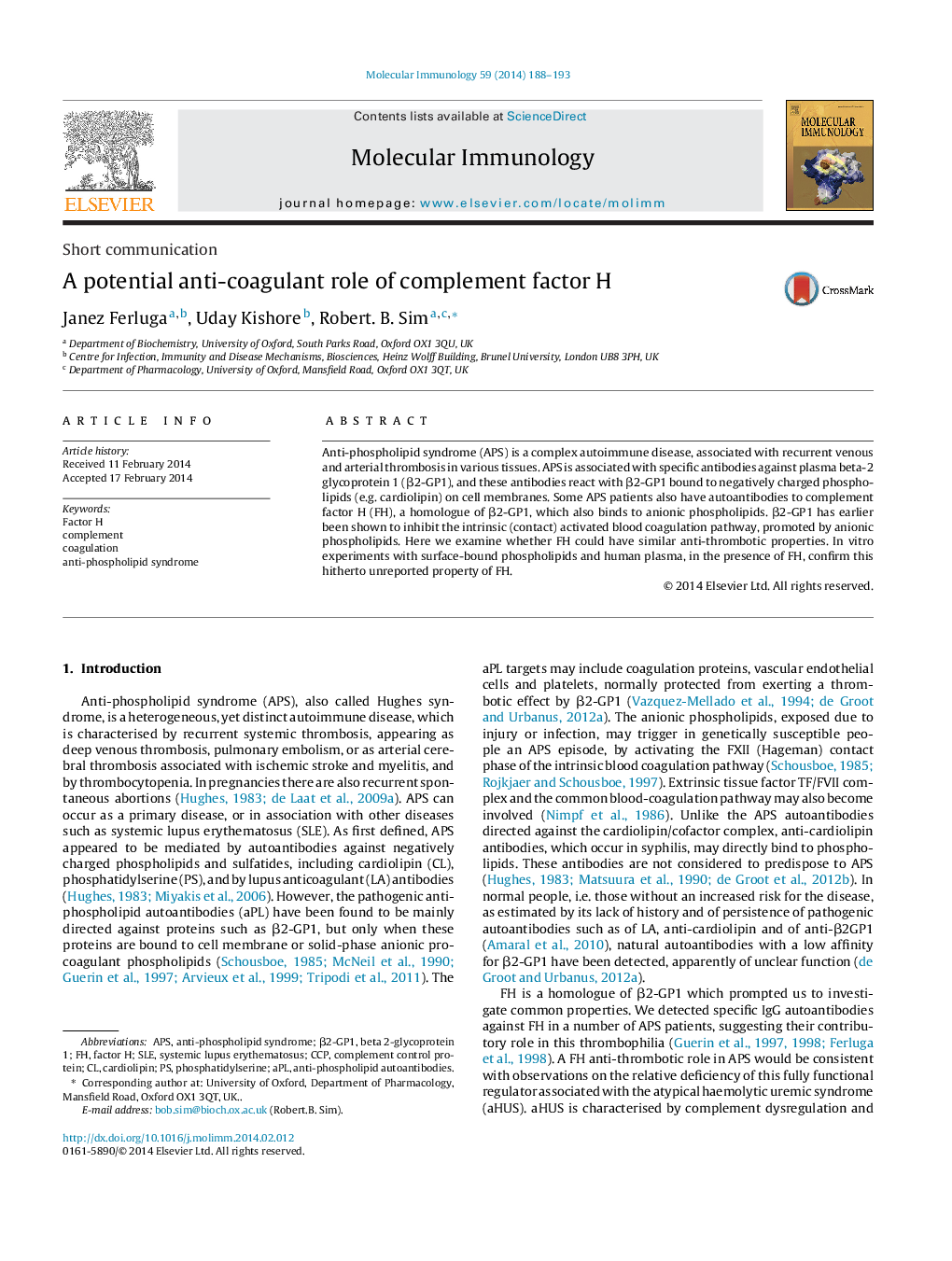| Article ID | Journal | Published Year | Pages | File Type |
|---|---|---|---|---|
| 5917069 | Molecular Immunology | 2014 | 6 Pages |
Abstract
Anti-phospholipid syndrome (APS) is a complex autoimmune disease, associated with recurrent venous and arterial thrombosis in various tissues. APS is associated with specific antibodies against plasma beta-2 glycoprotein 1 (β2-GP1), and these antibodies react with β2-GP1 bound to negatively charged phospholipids (e.g. cardiolipin) on cell membranes. Some APS patients also have autoantibodies to complement factor H (FH), a homologue of β2-GP1, which also binds to anionic phospholipids. β2-GP1 has earlier been shown to inhibit the intrinsic (contact) activated blood coagulation pathway, promoted by anionic phospholipids. Here we examine whether FH could have similar anti-thrombotic properties. In vitro experiments with surface-bound phospholipids and human plasma, in the presence of FH, confirm this hitherto unreported property of FH.
Keywords
Related Topics
Life Sciences
Biochemistry, Genetics and Molecular Biology
Molecular Biology
Authors
Janez Ferluga, Uday Kishore, Robert. B. Sim,
